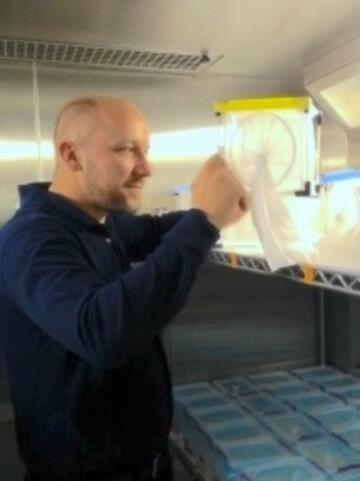
A seminar by Dr Tony Nolan, Senior Research Fellow, Faculty of Natural Sciences, Department of Life Sciences, Imperial College London
This seminar will be live-streamed via: http://bit.ly/LSTM-Sem-TN
A recording will be made available the following day
On Dr Tony Nolan:
I am a molecular biologist trying to manipulate the biology of the mosquitoes in ways that can interfere with their ability to transmit disease. I work mostly on the mosquito Anopheles gambiae, the main vector of the most severe form of human malaria in Africa.
Over the last few years I, with other members of this Department, have developed several genetic tools for the mosquito that allow its transformation to express foreign genes, manipulation of its behaviour and its capacity to reproduce, and its ability to transmit the malaria parasite.
To date all successful malaria control programmes have aimed at reducing the population of the mosquito vector, either by habitat removal, insecticide spraying or the use of insecticide-treated bednets. Despite some of the successes of these approaches they are compromised by problems of logistical complexity and the emergence of insecticide-resistance.
My focus is on understanding the reproductive biology of the mosquito and particularly the female, since it is generally the productivity of females that determines population size.
Currently I am working on a project that is developing a class of endonucleases (specialised DNA cutting enzymes that can be designed to cut at very specific sequences) so that they can be used for gene drive in mosquito populations. Gene drive ensures that a copy of a gene is inherited among a disproportionately high proportion of offspring. Coupling a modification that selectively disrupts female fertility with gene drive element could rapidly lead to spread of the element and an overall decrease in the reproductive output, leading to population suppression. This approach has the advantage that it is 'self-sustaining' in that only a relatively small number of mosquitoes need be released, it is species-specific since it relies on the process of mating in order to spread through a population, it is cost-effective since the mosquitoes themselves do the work of spreading the modification through a population